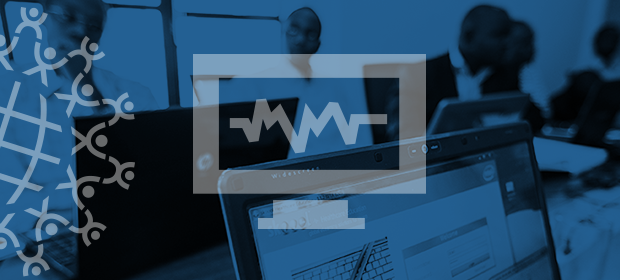Where We Work
See our interactive map


How to learn from projects past—and avoid their mistakes.
Digital health interventions benefit enormously when implementers document and learn from past and current digital health projects. This is where knowledge management (KM) can help.
Knowledge management is a systematic practice that helps you learn from others and helps others outside your project learn from you. It is an inherently social process, largely dependent on making sure systems and processes are in place and staff are incentivized to do it.
KM really wants to be your friend.
Good knowledge management practices have beneficial outcomes including increased efficiencies, increased information use, and the ability to innovate faster—and better.
Both KM and digital health fields are interdisciplinary. Both involve information, communications, people, and technology. And both focus on how information is being collected and used to improve health and development outcomes.
To my fellow digital health implementers, KM really wants to be your friend. We’re practically twins separated at birth.
Yet, where digital health implementers often want people to benefit from their technologies as fast as possible, KM practitioners often want to slow things down just enough to make room for the learning required to develop the best intervention possible.
Here are three simple practices that digital health implementers can do to be knowledge stewards and help their programs do more, be more efficient, and uphold the Principles of Digital Development.
Turns out, the wheel works. And, the square doesn’t work so well. It will save you time and money to build staff time early in the development process to research and learn about the health systems and technology environment, past digital health interventions that targeted the same stakeholders, or digital health projects and partners/competitors that addressed the same issues or used the same technologies.
You will inevitably uncover lessons learned that will increase your project’s chance for success—and may even help you avoid some embarrassing pitfalls. Happily, there are a number of KM tools and digital health implementer communities to support your research and collaboration. A few to look into include:
Project management practices are widely used in technology development, and knowledge management practices should be embedded within this structured discipline. This takes some forethought, as you need to ask yourself critical questions relevant throughout the project lifecycle:
There are some important KM strategies currently used in digital health that should be even more widespread: the use and maintenance of wikis among developers, mandating the requirement that technology vendors provide all documentation of development, and collecting and indexing development snapshots or system images into findable, searchable repositories.
Change management, a necessary component of any project management, will benefit greatly if the documentation during testing activities—such as beta testing, agile sprints, user acceptance, and piloting—clearly illustrates what happened and how that resulted in changes.
Each team member can and should contribute to the process of knowledge reflection. Make sure team members and leaders know about the value of the reflective process throughout the project and then plan and develop simple methods to do so after important project milestones. Then, unapologetically reserve the time and space to do them—it’s time-sensitive given our short memories, quick-paced projects, and changes in project staffing.
The Collaborate, Learn, and Adapt framework offers excellent guidance on how to develop a learning agenda and learning questions. Some of my favorite short facilitative methods for team reflection and learning include: After Action Reviews, Nine Whys, and Appreciative Interviews. While you don’t need in-depth training to use these methods, they work best with a neutral facilitator. If you can’t afford a consultant, ask a colleague.
That’s not what I am suggesting here, although your donor reporting will be greatlyimproved if you have taken the steps outlined above.
I am suggesting you pay it forward and make sure your projects are included in relevant global compendiums such as the mHealth compendium. You should also find compelling ways to share your success and failures by synthesizing your team’s reflections into meaningful materials and messages.
Blog posts, conference presentations, and even social media posts are just some examples of ways you can ensure your team’s lessons and successes are available to inform the next project coming down the road. Include this work in your communications strategy (a subject for another post!) from the beginning.
All of these practices take time, attention, love, and a champion within the project to coordinate the efforts. You’re slowing down so you can go faster in the long run. You’re investing time and resources in planning and learning so that ultimately digital health interventions will be as effective as they can be, sustained through country-ownership, and provide better healthcare to those in need.
Everyone in digital health can be a knowledge manager, or at least a knowledge manager’s best friend.
If you’ve read this far, you really should join my Global Digital Health Forum 2017 workshop on integrating KM into DH projects.
This post originally appeared on ICTWorks.
Get the latest updates from the blog and eNews




